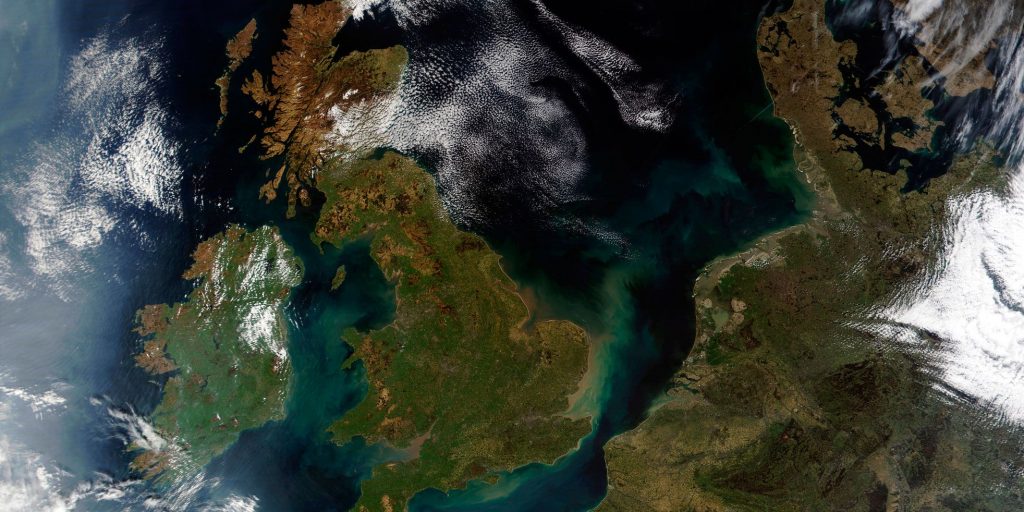When we apply Marxism Leninism to the National Question, we must look dialectically at the class forces at play in shaping the social and national development as well as identity of Nations. For our purpose, let’s look at one particular nation in Britain. Scotland, fundamentally, is a nation.
Simply put: “A nation is a historically constituted, stable community of people, formed on the basis of a common language, territory, economic life, and psychological make-up manifested in a common culture.”
Clearly on this basis, Scotland is a nation, but we have to delve into its history to start to understand how the national question has developed. Our nation formed in the 9th century, it existed as an independent nation until 1707, when the Act of Union, building on the previous century’s Union of Crowns, saw Scotland unify with their historical rival, England, to form Great Britain.
Like most Western European nations, Scotland developed firstly from a feudal and then into a capitalist nation. During its near millennium independence it often clashed and was influenced by its English neighbour. This relationship, this influence, saw a gradual fusion; we begin to see a common language, distinctive territory, shared economic life, religion and monarchy.
Episodes such as the Wars of Independence leading up to the early 14th century, the dual crowns under the Scottish house of Stewart, the Covenanters, the Glorious Revolution, the Industrial Revolution and rapid expansion of the British Empire demonstrate the changing social, economic and political conditions that have shaped our nation historically.
More recently, the fall of the Empire, the fall of the post war social democratic Keynesian consensus, giving birth in the destructive period of deindustrialisation to around forty years of unchallenged Thatcherite neoliberal hegemony, has utterly changed the social relations within Britain and has seemingly unleashed the latent fury of the Scottish people: all united, as the refrain goes, under one nationalist banner.
The default starting point in our approach to the national question is the right of nations to self determination as argued by Lenin. For us, this means that we recognise that nations have the right to choose their own path, their own destiny; and we offer our full support to holding a vote or referendum to allow the people their democratic vote to exercise their will. That does not then mean that we unconditionally support demands either way in a vote for independence. We must instead look at the balance of class forces, and ask in whose benefit an independent country would be run.
The National Question is meaningless for the working class if it does not seek to confront and resolve the issues which daily plague and torment working class people; namely, a rigged political system, alienation from their work, apathy bordering on nihilism, leading to feelings of hopelessness; in a single word, the question we ask is one of power.
For the national question to have bearing and meaning, it must be presented along lines of power, along lines of class struggle, along lines which present workers with the choice: to confront the power of capital that forces our class to conform to suit the demands of the wealthy and powerful in order to live; or to merely tinker around the edges, making purely cosmetic changes.
If there is to be any meaningful benefit to our class in the event of independence, we’d need a radical worker’s government run in the interests of the Scottish working class, with the workers themselves constituting the nation. We would need to see a huge injection of class politics into the mass movements in this country.
That is absolutely not to write off the possibility of an independent Scotland, we are not against an independent Scotland on principle, we are against it because of what it would mean for the balance of class forces across Britain.
Were Scottish independence promised on a banner of real radical change, with class at its heart, genuinely led by the workers and their leaders rather than championed by the ruling class on their behalf then we would support it. This is not mere wishful thinking or ideological purity on our part. What’s more, as Communists this is our ultimate aim, that the nation should be the workers, the 99%, and not the plaything of the wealthy, powerful few.
In truth, the question of Scottish independence is irrelevant to the forces that right now and in future will act upon Scotland. What is in the best interests of Scotland, the workers’ Scotland, is not whether we are ruled by Capitalists in Brussels, London or Edinburgh; but whether we will have the true and democratic freedoms that only Socialism can provide. A planet that isn’t beyond saving in 20 years, housing, education, jobs, food, humanity – as a fundamental right for each and every one of us.
Our immediate goal is to raise class consciousness, and raise our sights to once more fighting the ruling class at home and abroad.



